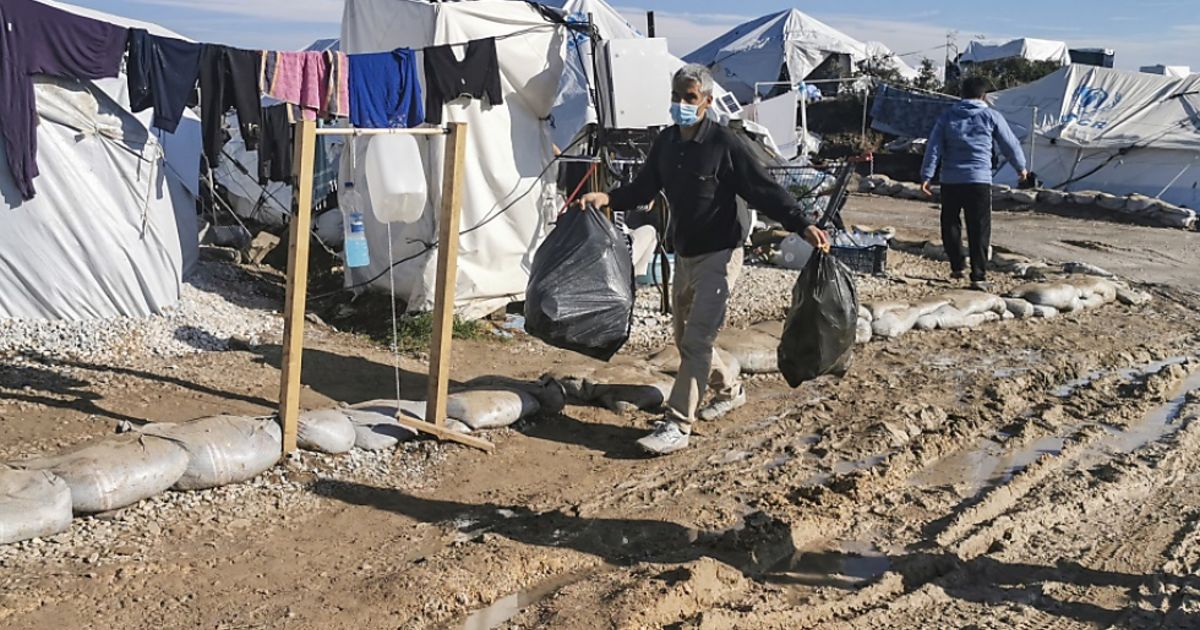On the fifth anniversary of the EU refugee deal with Turkey, the expert Gerald Knaus, often referred to as its “architect”, calls for a reform of the agreement. The fact that the EU had not started new negotiations with Ankara before the expiry of the previous year was a “serious mistake”, Knaus said in an APA interview. In any case, the prospects for a new agreement are good: both Turkey and Greece are very interested in it.
The only thing missing is someone “who can bring it to the table,” said the Austrian migration researcher. The EU Commission will not be, individual states would have to take action here. The EU-Turkey deal, which is actually “only” a legally non-binding “declaration”, is primarily due to the commitment of the German government.
In Knaus’ opinion, a new agreement should aim at an immediate evacuation of the camps on the Greek islands. “Something like that must never happen again.” In addition, it must be ensured that there are enough staff to process asylum applications on the islands. The agreement should also be extended to land borders (so far it is only applicable to arrivals by sea) and contain a “binding, clear commitment” by the EU to Turkey to accept refugees. As the fourth of five points for a new deal, Knaus named the creation of a kind of monitoring mechanism to prevent human rights violations such as illegal rejections in the Aegean. Finally, the situation on the Turkish-Syrian border should be addressed “urgently” and taken seriously, the expert outlined his suggestions.
The original agreement reached on March 18, 2016 resulted in a “win-win-win situation for everyone” up to around a year ago, emphasized Knaus. The EU “was in control, Turkey received aid and the right to asylum was also preserved.” In addition, the number of arrivals fell immediately. Since the “big break” at the end of February / beginning of March last year, as the expert puts it, there has been a “lose-lose-lose situation” – Turkey has no additional money, the EU is pushing people back illegally (pushbacks) and the situation on the Greek islands has not really improved either.
According to Knaus, one of the “two big mistakes” of the agreement can be found there: The conditions of admission to the Aegean Islands were “always deterring”, faster procedures and thus faster deportations have never been achieved. The second big mistake was that after the deal expired, Brussels did not approach Turkey to start new negotiations, explained the head of the “European Stability Initiative” (ESI) think tank. Instead, it came to a break after calls from Turkish President Recep Tayyip Erdogan for more financial support in Brussels and he then had refugees taken to the borders with buses. The Greek border guards reacted with violence and the government temporarily suspended the right to asylum. “Since then, the pushbacks have also skyrocketed,” said Knaus, concerned.
According to the migration expert, the “big question” for the EU is now: “Are you satisfied with the status quo – suspension of the refugee convention, breaking the European Convention on Human Rights (ECHR), pushbacks – a state of quasi lawlessness? Reach an agreement with Turkey that is in line with human rights? “
There are two options today: “Humane control with the right to asylum or the current policy of deterrence.” The more Europeans get used to violence and European migration policy going hand in hand, the faster the Geneva Convention on Refugees will die, warned Knaus with a view to human rights violations at several EU borders.
When asked whether the EU would not make itself more dependent on Turkey by renewing the agreement, the co-initiator of the pact replied: “Whether the EU wants humane border protection and relies on cooperation, or on forbidden pushbacks, that is decided by the European government In the first case, the EU needs partners, including Turkey. There is no deterrent by suspending all legal standards. Only that would be a very high price. “

